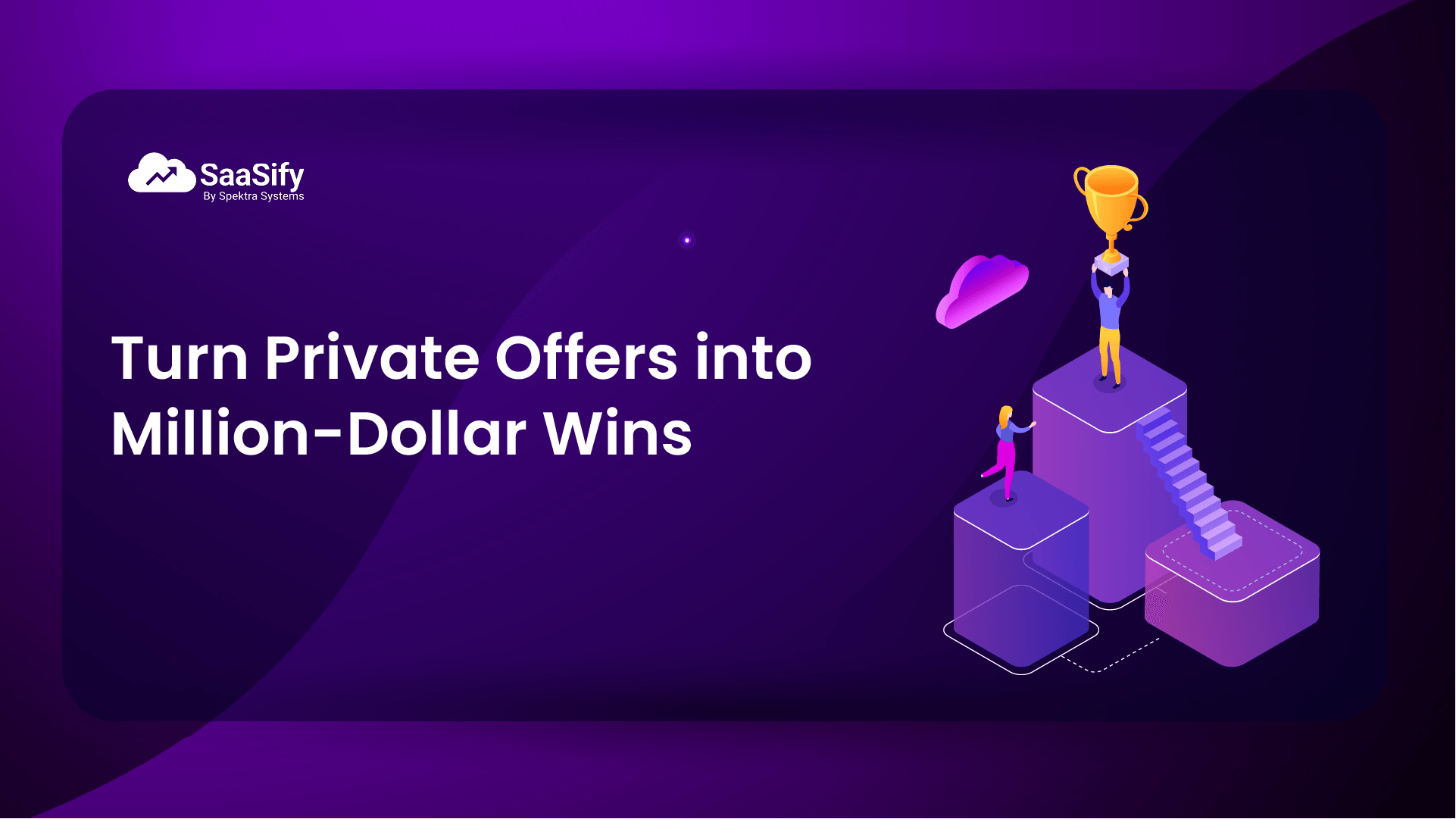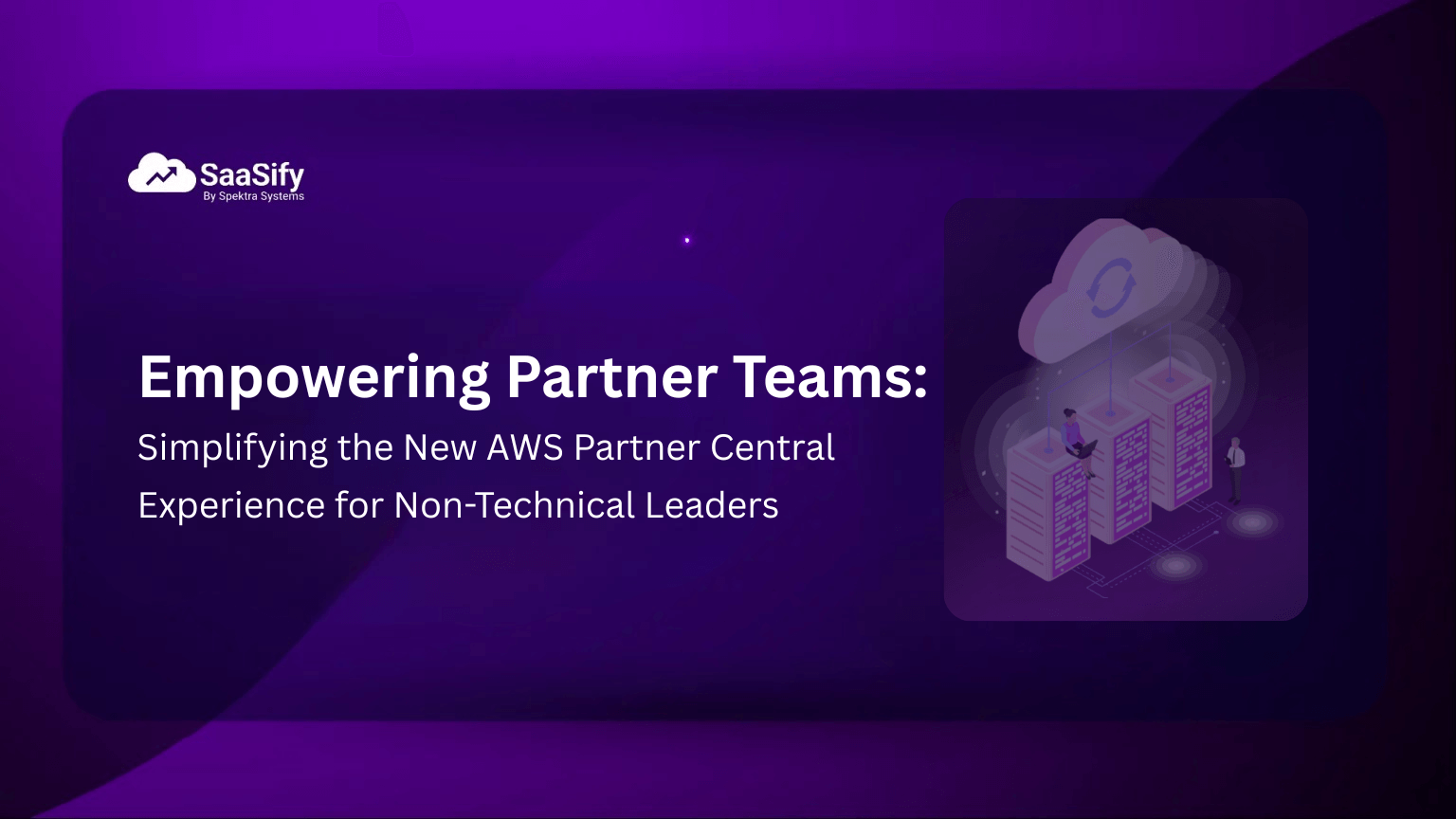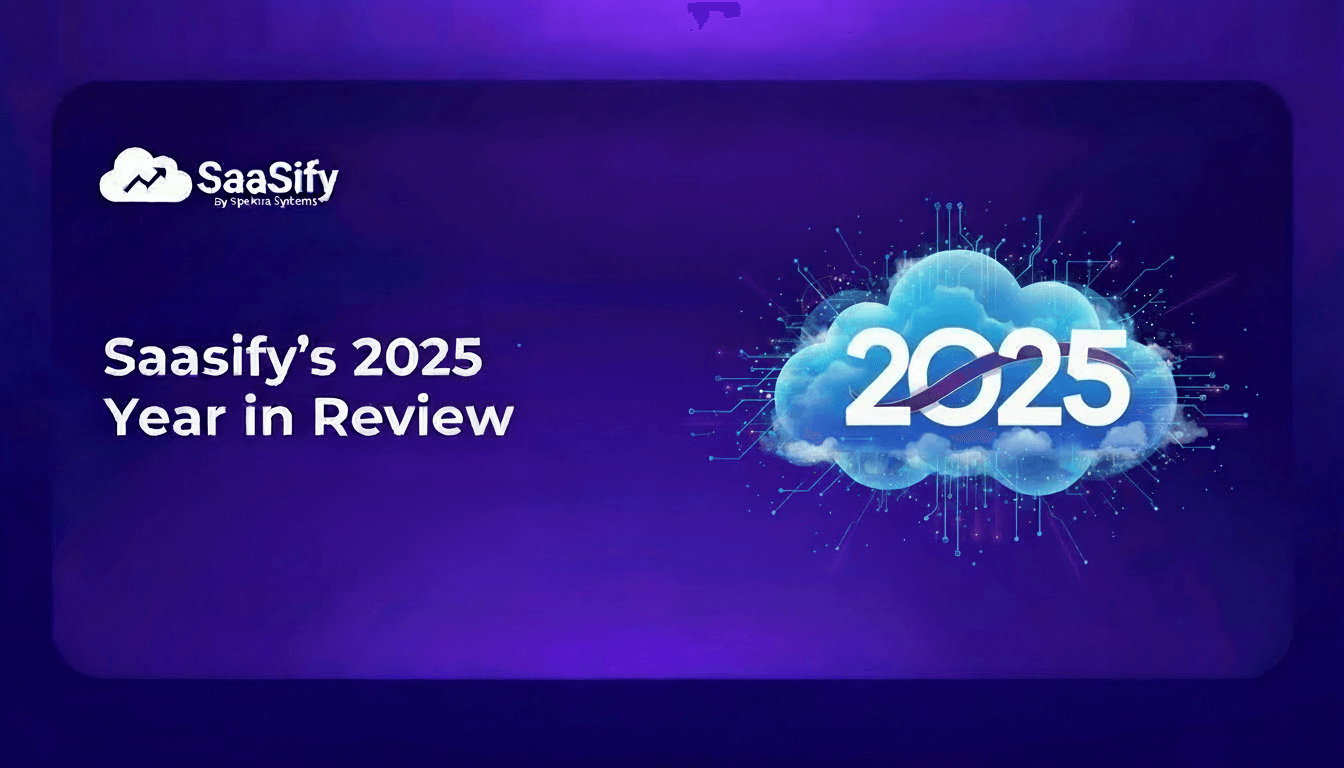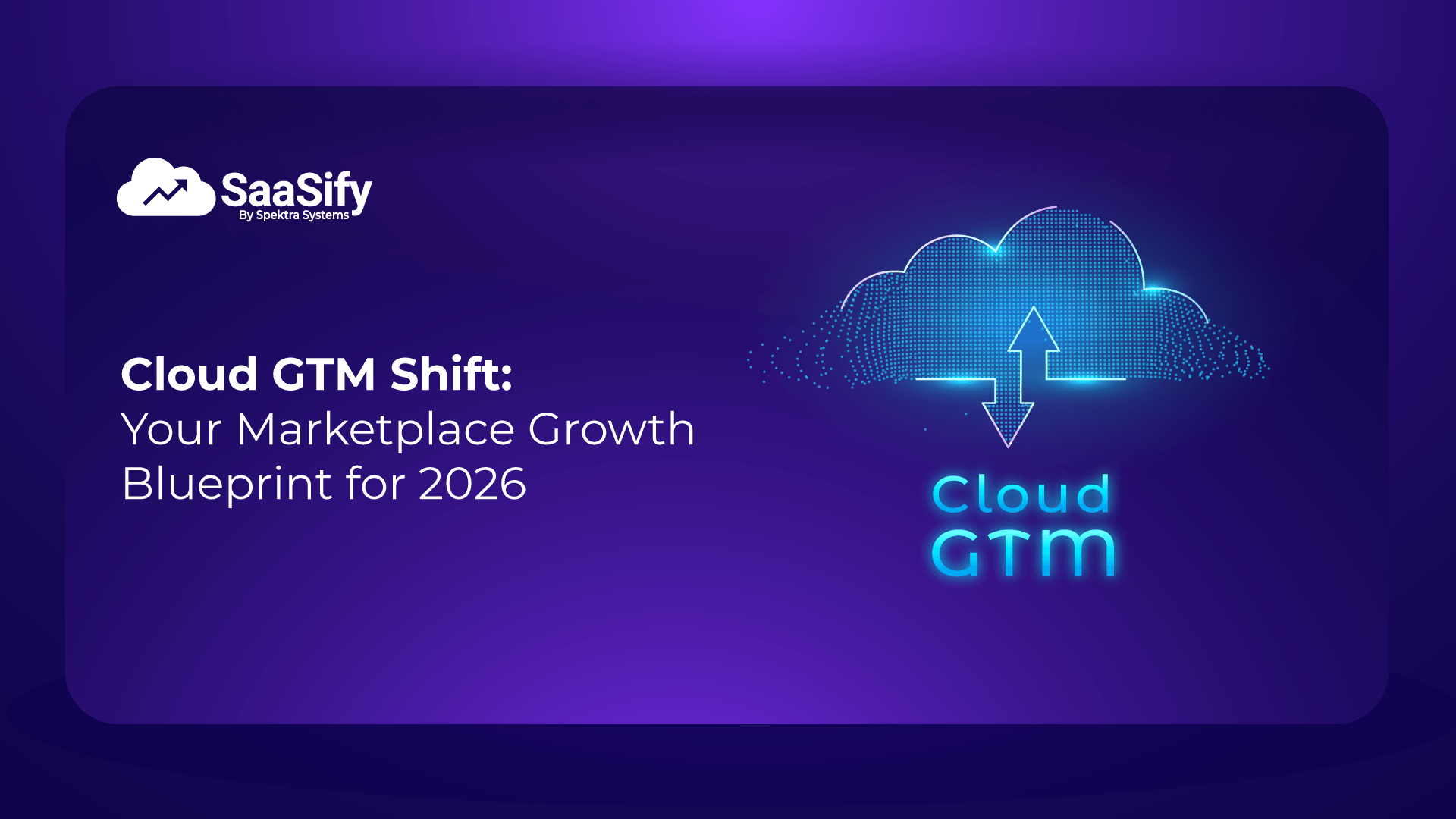With each passing year, interest in cloud marketplace-driven procurement is accelerating. What began as a simple software catalog has now evolved into a strategic procurement channel, projected to reach US$85 billion by 2028. This growth, from approximately $16 billion in 2023 to $85 billion in 2028, represents more than a fivefold increase in just five years, underscoring a transformative shift in the software procurement landscape.
For ISVs selling in cloud marketplaces, now is the time to build the Revops motion that converts enterprise intent into seven-figure contracts.
Multi-million-dollar deals on cloud marketplaces aren’t rare anymore, but they don’t just happen on their own. Landing these big cloud marketplace deals usually comes down to two things:
- The impact of your marketplace private offers, and
- How effectively you leverage your partnerships to scale co-sell through private offers
In this blog, we will explore how private offers on cloud marketplaces become your fastest route to seven-figure TCV. We will define the mechanics, highlight what changes at enterprise scale, and guide you exclusively on strategic verticals of an effective marketplace private offer.
We will also showcase the operational blueprint SaaSify provides to make this motion repeatable with automated marketplace operations.
Let’s start with an overview of marketplace private offers.
What Are Marketplace Private Offers?
A private offer is essentially a customized contract between an ISV and a buyer, transacted through a cloud marketplace (AWS, Azure, or GCP). Unlike public listings, which are standardized and visible to anyone browsing the marketplace, private offers are quote-based offers designed for specific customers with tailored terms.
At its core, a marketplace private offer allows ISVs to adjust four critical deal elements:
- Pricing -ISVs can customize pricing beyond what is publicly listed.
- Contract Length - Instead of the typical month-to-month or annual terms, marketplace private offers can lock in multi-year contracts.
- Contract Conditions -ISVs can negotiate special terms such as service-level agreements (SLAs), customer success commitments, or tailored onboarding packages.
- Billing Through the Hyperscaler– Customers pay through their existing AWS, Azure, or GCP bill.
The 4 Building Blocks of a Marketplace Private Offer
1. Pricing
Customize pricing to align with buyer budgets and deal size.
2. Contract Length
Lock in multi-year contracts and align with enterprise budgeting cycles.
3. Contract Conditions
Negotiate tailored SLAs, onboarding packages, and long-term commitments for enterprise buyers.
4. Billing Through the Hyperscaler
Simplify transactions by billing customers directly through AWS, Azure, or GCP.
How Private Offers Play a Pivotal Role in Closing Seven-Figure Deals
The enterprise SaaS sales ecosystem is conservative by design. Beyond pricing and terms, procurement teams need predictable billing paths, budget exhaustion or replacement logic, and minimum legal friction.
Private offers, transacted directly through cloud marketplaces, are designed to do exactly that. They enable:
- Tapping into pre-committed cloud budgets. Private offers on cloud marketplaces can be structured to count toward programs like Azure MACC, AWS EDP, or Google CUDs, letting buyers use already-approved funds.
- Compressing the procurement timelines. By leveraging hyperscaler billing and standardized marketplace processes, private offers avoid lengthy vendor onboarding cycles. Deals that once took months can close in weeks or days.
- Providing enterprise-grade flexibility to ISVs. You can bundle services, lock in multi-year pricing, and match buyer SLAs- all while keeping the transaction inside the marketplace.
- Strengthening strategic relationships. Private offers often become the gateway to deeper partnerships and co-sell opportunities. Sellers can bundle onboarding, co-development, and joint GTM initiatives into the deal, positioning themselves as long-term strategic partners.
Anatomy of a Seven Figure Private Offer
Crafting a seven-figure private offer is a strategic move that requires alignment with how enterprise buyers plan, budget, and procure cloud solutions. At SaaSify, we’ve seen that ISV sellers who treat marketplace private offers as part of their go-to-market strategy consistently close high-value deals through the cloud marketplaces.
Here’s how you can make your private offer more tailored and buyer-aligned:
Plan strategically for multiyear commitments, predictable revenue
Big value marketplace contracts typically span over years. This multiyear structures lock pricing, defines ramp milestones, and aligns with how cloud commitments are planned. As such, you should incorporate enough flexibility to match the standard expectations from a tailored marketplace private offer.
Create a private offer that:
- Match buyer payment cadence (annual/quarterly).
- Define renewal rules and extension rates up front.
- Include a rate card for planned expansion so future growth doesn’t require full re-negotiation.
Enterprise level customizations
Private offer PDFs can carry concise SLA targets, data handling commitments, and references to your DPA. Keep it short and specific. Buyers want clarity without reopening the master agreement. ISVs should leverage hyperscalers’ contract notes for reducing friction in closing enterprise deals.
Bundled solutions
Seven figure TCV often comes from packaging your core SaaS with professional services and success plans. ISV sellers should explore the guidelines of the hyperscaler platform to create a package that meets the platform norms.
Volume based pricing
Use tiered pricing tied to seats, events, or consumption. Buyers get meaningful discounts at specific thresholds, and you protect margin by rewarding real adoption. Leading hyperscalers like AWS, Azure, and GCP support negotiated pricing inside private offers, with usage showing up in standard, detailed billing.
Strategies to Close Bigger Deals with Private Offers on Cloud Marketplaces
Four Strategies to Accelerate Seven-Figure Marketplace Wins
Pinpoint buyers most ready to transact
(Focus on buyers with pre-committed cloud spends and proven need for your solution.)
Turn hyperscaler and channel sellers into internal advocates
(Strengthen trust with AWS, Azure, and Google Cloud sellers to unlock co-sell opportunities.)
Bundle value beyond licenses
(Combine your Offer with GTM initiatives that show long term commitment)
Balance buyer flexibility with business profitability
(Design offers that feel accommodating to enterprise needs but still protect your revenue goals.)
Identify your ICP with commitment signals
Getting in between the buyers that need your solution can be the first strategic move towards closing large contract deals faster. From exploring categories to building relationships with channel partners, ISVs should prioritize measures that take them closer to the buyers with pre-committed cloud spends.
What to do:
- Search for buyers using a similar product from one of your competitors.
- Explore business verticals where your solution has a strong use-case fit.
- Target companies in the size segment (e.g., mid-market or enterprise) where your solution consistently delivers the most value.
Build relationships with hyperscaler sellers and channel partners.
Hyperscaler and channel partners are the people who already have deep relationships with enterprise buyers and a clear view of active cloud projects. When they trust your solution and see how it complements solving a specific problem or their own growth goals, they can become powerful advocates inside customer accounts. As such, building a strong relationship with your partner sellers is a mandatory strategic move.
What to do:
- Invest time in building personal credibility with account managers at AWS, Azure, and Google Cloud.
- Position your solution as directly supporting their customer retention and consumption goals.
- Leverage channel partners to accelerate introductions, co-sell motions, and influence buyer confidence.
Offer a comprehensive package.
When your private offer goes beyond software licensing and includes services like onboarding, training, customer success support, or even joint GTM opportunities, it signals that you’re committed to being a long-term partner, not just a vendor.
What to do:
- Bundle professional services (implementation, onboarding, training) directly into your private offer.
- Include flexible support packages that meet enterprise SLA expectations.
- Where possible, add co-development or build your cloud GTM initiatives to highlight your long-term commitment.
Negotiate for Flexibility Without Sacrificing Margin
When you’re working on 7-figure SaaS deals, buyers will naturally ask for flexibility. The goal is to give them options that feel accommodating while still protecting your bottom line. Here are a few ways to strike the right balance for deal acceleration:
- Offer flexible terms. Instead of locking buyers into one rigid contract length, present options like a three-year base term with an option to extend. Buyers gain budget certainty, while you gain predictability on renewals.
- Reward growth, not just size. Avoid blanket discounts that cut too deeply into margins. Instead, create pricing tiers that kick in as usage grows. This way, buyers see clear rewards for adoption, and you maintain healthy pricing.
- Be smart with payment timing. Align invoicing schedules with the buyer’s budget cycles or quarter-end needs. Sometimes, just adjusting when invoices are issued can ease procurement hurdles without touching price.
How SaaSify turns private offers into repeatable enterprise wins
You now understand what marketplace private offers are and why they work. Execution is where deals scale. If you want private offers to become a predictable route to seven-figure TCV, you need: automated execution, CRM alignment, co-sell orchestration, and governance. That is precisely the problem we solve. SaaSify is a SaaS enablement platform that helps ISVs optimize their offers for improved marketplace performance.
Here’s how SaaSify helps you take control of the process:
1) Automating the private offer creation and distribution lifecycle
Normally, custom pricing and legal reviews turn into endless back-and-forth emails. Deals stall, signatures get lost, and sellers waste time chasing updates. With SaaSify, those bottlenecks disappear. We automate approvals, contracts, and submission workflows inside ready-made templates.
The result? Instead of weeks of delay, your team can go from “terms agreed” to “offer submitted” in just a few days.
2) Fast-tracking the offer submission process
Submitting offers directly into AWS, Azure, or GCP portals is error-prone and repetitive. Details get mistyped, versions get mixed up, and you lose the paper trail. SaaSify eliminates that hassle by plugging directly into marketplace APIs. Offers are built and submitted programmatically, complete with your standard terms and clauses.
The result? Every submission is clean, accurate, and fully auditable, giving both you and the hyperscaler confidence in the process.
3) Syncing your CRM with Marketplace for a unified scaling experience
One of the biggest pain points for ISVs is the disconnect between CRM data and marketplace transactions. If finance and sales aren’t looking at the same numbers, forecasting and renewals get messy. SaaSify bridges that gap. Our no-code connectors sync opportunities, billing, and usage data between Salesforce, HubSpot, and the marketplaces.
The result? Sellers keep working in the system they know, while RevOps gets real-time visibility into contracts, renewals, and commit drawdown.
4) Extending a built-in strategic co-sell support
Private offers move faster when hyperscaler reps are in the loop. But registering every deal into co-sell portals is tedious and often error-prone. SaaSify bakes this into the workflow. Every qualifying private offer can automatically generate a co-sell referral, complete with the proof hyperscalers need to position your solution as commit-burning.
The result? Your deals become more attractive to hyperscaler sellers, who now have a reason to push them forward with you.
5) Providing visibility into commitment burndown
Enterprise buyers care about one thing: “Will this purchase count against my committed cloud spend?” Giving a clear visibility is essential to eliminate acceptance delays. SaaSify ensures private offers carry the right attributes to qualify for commit burndown, and it reconciles those details back into your CRM for finance.
The result? Buyers get certainty that their spend counts, and you remove one of the biggest blockers to marketplace deal acceptance.
6) Building governance with standardized templates
Without guardrails, marketplace private offers can become inconsistent. SaaSify builds governance into the process by enabling your GTM teams to run private offers through approved templates, role-based approvals, and embedded rules for pricing, SLAs, and bundling.
The result? Sellers still have flexibility to tailor deals, but every contract stays within finance and legal guardrails, protecting both margin and compliance.
Way Forward: Turning Private Offers into a Strategic Advantage
Marketplace Private offers are no longer an exception; they are fast becoming the standard path for enterprise software procurement. They compress procurement timelines, align directly with how buyers retire cloud commitments, and allow ISVs to lock in multi-year contracts without battling the traditional vendor onboarding grind.
For buyers, marketplace private offers mean simplicity: transact against existing cloud budgets, secure the best-negotiated terms, and gain the flexibility to scale within a trusted billing relationship. For ISVs, they mean control: tailor pricing and contracts for each customer, accelerate closure of large deals, and strengthen relationships with hyperscaler sellers who are incentivized to champion your offer.
But knowing the value of private offers isn’t enough. Winning consistently in this motion requires execution discipline:
- Spotting commitment signals early.
- Building strong alignment with hyperscaler sellers and partners.
- Packaging complete solutions that show long-term commitment.
- Negotiating flexibility without eroding margin.
And most importantly, removing the operational barriers that slow these deals down.
That’s where SaaSify becomes a growth multiplier. With marketplace private offer automation, CRM-Marketplace data sync, and embedded co-sell alignment, SaaSify turns what feels like a complex, one-off win into a repeatable, scalable motion.
If you are a SaaS ISV aiming for enterprise-scale deals, now is the time to master this motion. With automated private offer workflow as your path and SaaSify as your execution partner, seven-figure marketplace deals stop being rare wins and start becoming your norm.
Ready to boost sales on the cloud marketplace?
FAQs:
1. What exactly makes a private offer different from a standard marketplace listing?
A private offer is a customized contract between an ISV and a specific buyer, allowing tailored pricing, contract length, SLAs, and billing terms. Unlike public listings, private offers are not visible to all marketplace users and are designed to align with enterprise procurement policies, accelerating approvals and enabling larger deals.
2. How does private offer automation help ISVs close deals faster?
Private offer automation reduces operational friction in the deal-closing cycle. GTM teams can define conditions for instant private offer creation and distribution through field mapping. This accelerates workflows, helps ISVs reach prospects ahead of competitors, and scales their ability to close deals faster.
3. Are there hyperscaler-specific rules I should know for marketplace private offers?
Yes. Each cloud marketplace has nuances:
- Azure: Offers eligible for Azure Benefit contribute 100% to MACC consumption if purchased under the correct subscription or enrollment.
- Google Cloud: Channel Private Offers now allow 100% commit drawdown with improved partner economics.
- AWS: AWS Marketplace private offers submitted via CPP or EDP count toward the buyer’s committed spend, supporting structured volume-based pricing and bundled services. Understanding these rules ensures private offers maximize buyer alignment and speed.
4. How can ISVs make private offers on cloud marketplaces more buyer-aligned?
Key strategies include: structuring multi-year contracts, offering tiered or bundled pricing, customizing SLAs and onboarding packages, and ensuring billing aligns with the buyer’s cloud commitment. These adjustments reduce friction and increase the likelihood of executive approval.
5. How does automation support closing large private offers on cloud marketplaces?
Automation standardizes repetitive workflows like pricing approvals, contract generation, and marketplace submission. This allows ISVs to execute complex deals consistently across sellers, reduce errors, and free up teams to focus on strategic engagement rather than administrative tasks.
6. Why is co-sell alignment with hyperscaler sellers important?
Hyperscaler sales teams influence procurement approvals and can champion your marketplace private offer. Aligning with them ensures your offer fits into the buyer’s existing cloud commitments and maximizes funding or priority support, accelerating deal closure and increasing deal size.
7. Can smaller ISVs benefit from private offers, or is this only for large enterprises?
While private offers are often associated with enterprise deals, any ISV looking to scale revenue in the cloud marketplace must secure multi-year commitments, optimize buyer alignment, or bundle solutions that can benefit the buyers. Even smaller ISVs can use private offers on cloud marketplaces to reduce procurement friction and create predictable revenue streams.
8. What is the strategic value of treating private offers as a repeatable motion?
Rather than viewing them as ad hoc deals, repeatable private offer processes ensure consistent execution, faster deal cycles, and predictable revenue. By standardizing workflows, syncing with CRM systems, and leveraging co-sell support, ISVs can scale private offers across multiple accounts without operational bottlenecks.


















